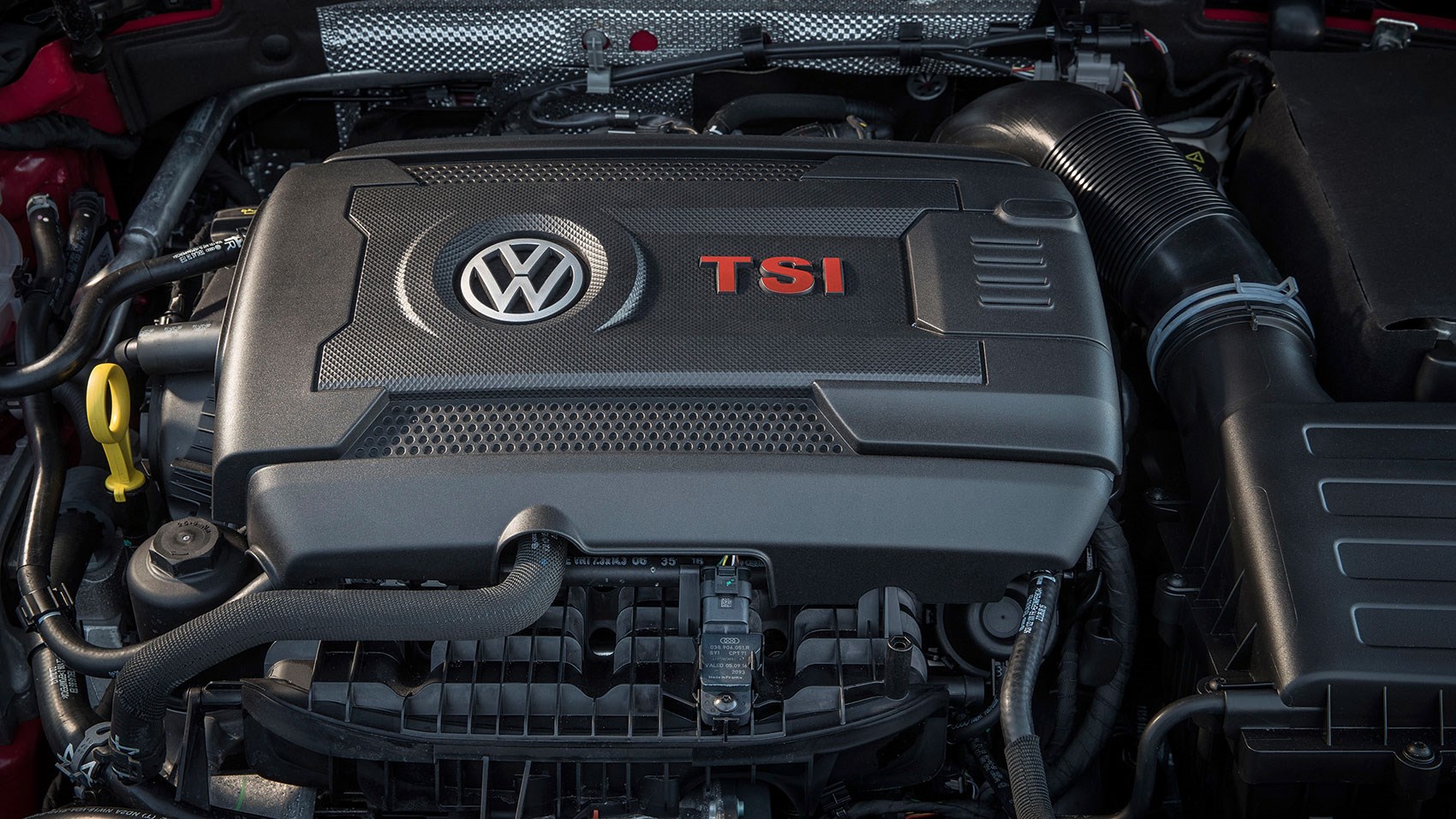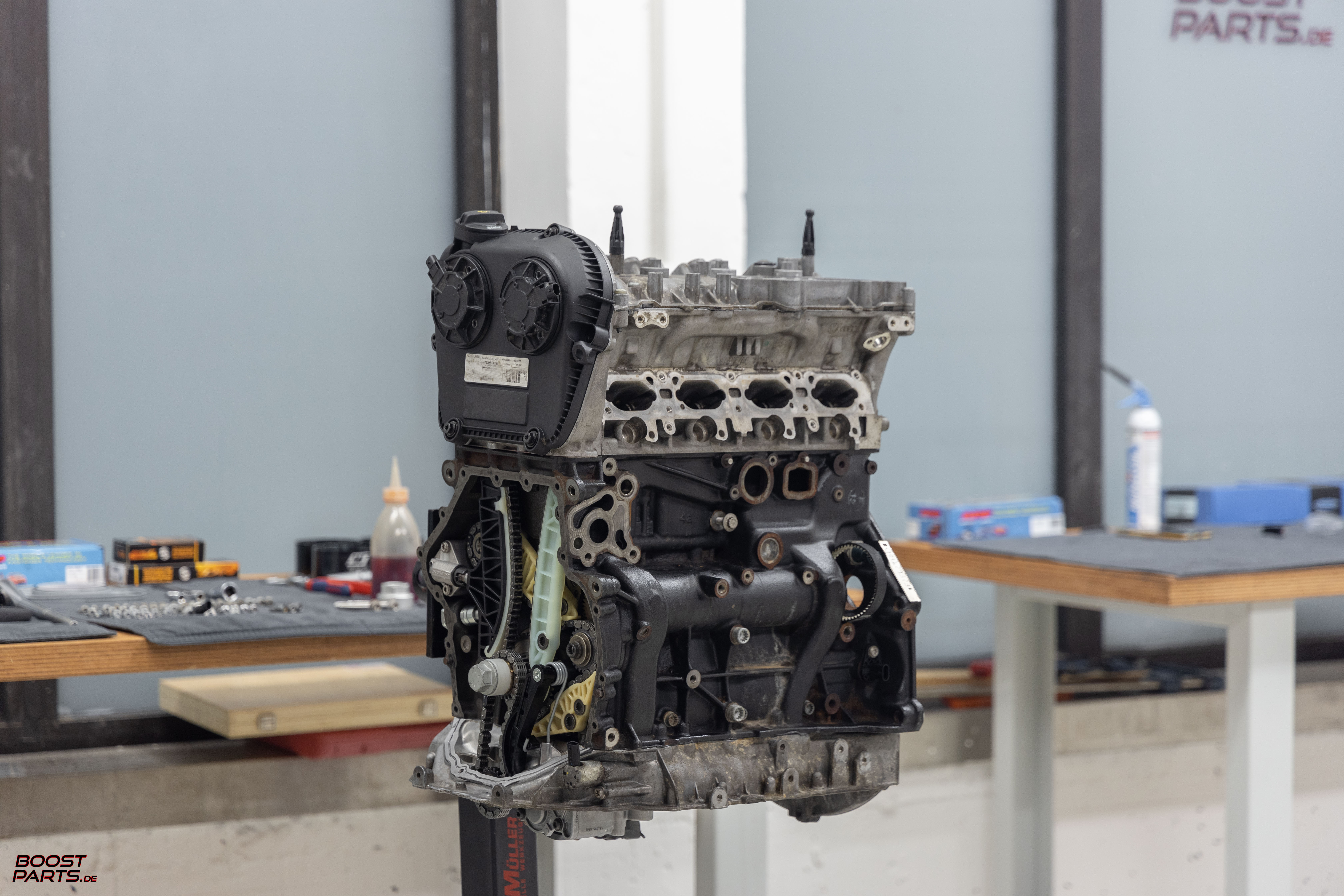Why the Golf 7 GTI Engine Stands Out in the World of Hot Hatches
Why the Golf 7 GTI Engine Stands Out in the World of Hot Hatches
Blog Article
Your Overview to the Golf 7 GTI Engine: Dependability and Upgrades
The Golf 7 GTI, outfitted with its 2.0-liter turbocharged inline-four engine, stands for a balance of performance and reliability that appeals to enthusiasts and everyday vehicle drivers alike. Exploring different performance upgrades can substantially improve both power and efficiency.
Review of the Golf 7 GTI Engine
The heart of the Golf 7 GTI is its 2.0-liter TSI engine, a turbocharged four-cylinder that provides an excellent blend of power and effectiveness. This engine generates a durable 220 horse power and 258 lb-ft of torque, permitting the car to accelerate from 0 to 60 miles per hour in just 5.6 secs, showcasing its flashy personality. The turbocharged design not just improves efficiency yet likewise enhances gas efficiency, making it a practical option for daily driving.
Including advanced modern technology, the engine includes straight fuel shot, which enhances burning performance and reduces exhausts. In addition, the Golf 7 GTI is outfitted with either a six-speed handbook or a six-speed DSG dual-clutch automated transmission, providing vehicle drivers with the adaptability to choose their liked driving style. The lorry's front-wheel-drive layout, integrated with a well-tuned suspension, guarantees agile handling and a responsive driving experience.
Engine Reliability Aspects
Dependability is a vital facet of any kind of performance-oriented vehicle, and the Golf 7 GTI's engine is no exemption. Numerous factors add to the general reliability of this very related to powerplant, which is important for both daily driving and spirited performance.
Firstly, the Golf 7 GTI is geared up with a durable 2.0-liter turbocharged inline-four engine, understood for its efficient style and strong design. This engine includes a forged steel crankshaft and light weight aluminum engine block, which give premium toughness and toughness while minimizing weight.
Secondly, routine maintenance plays an important role in enhancing engine reliability. Sticking to the producer's recommended solution periods, utilizing high-quality lubes, and changing important components such as stimulate plugs and filters can significantly prolong engine life.
Furthermore, the top quality of gas made use of can also influence integrity. Premium gas is recommended to guarantee optimum performance and lessen the threat of knocking or ignition.
Finally, the car's digital management system continuously keeps an eye on engine criteria, permitting real-time changes to maximize efficiency and efficiency while safeguarding versus prospective concerns. Collectively, these aspects underscore the Golf 7 GTI engine's online reputation for reliability among fanatics and everyday drivers alike.
Typical Concerns and Solutions
The Golf 7 GTI, while commemorated for its efficiency, is not without its challenges. Amongst one of the most regularly reported issues are engine oil usage and turbocharger failures, which can considerably affect vehicle dependability. Comprehending these typical issues and their remedies is important for maintaining ideal engine performance.

Engine Oil Usage
While many fanatics appreciate the efficiency of the Golf 7 GTI, engine oil usage can become a notable issue. Proprietors may see that their automobiles require more constant oil top-ups than anticipated, often associated to numerous aspects intrinsic in the engine's design and operation.
One usual problem is the engine's straight gas shot system, which can lead to increased oil intake because of the combustion process. Additionally, making use of high-performance driving behaviors can aggravate oil burn-off, particularly under hostile throttle conditions. Vehicle drivers may likewise experience oil leakages from gaskets and seals, which can add to minimized oil levels.
To resolve oil intake, routine upkeep is important. Routine oil changes making use of high-grade artificial oil can help keep ideal engine efficiency and longevity. Monitoring oil degrees and performing timely checks can prevent potential issues before they intensify. If extreme intake lingers, it might be advisable to speak with an expert specialist to assess the engine for potential internal troubles, such as worn piston rings or shutoff seals. Taking on these methods can considerably mitigate worries regarding oil intake in the Golf 7 GTI, making sure a more delightful and trustworthy driving experience.
Turbocharger Failings
Turbocharger failings can significantly influence the efficiency of the Golf 7 GTI, bring about reduced power and performance. Typical concerns associated with the turbocharger include oil leakages, wastegate failure, and too much shaft play. Oil leakages usually originate from worn seals or harmed gaskets, which can result in oil contamination and subsequent engine damages. Frequently inspecting these components can aid determine and minimize such concerns early.
Another common issue is wastegate failure, which can result in overboost or underboost conditions. This not only affects the vehicle's efficiency however can likewise cause serious engine damage if left untreated. Updating to a much more durable wastegate can enhance reliability and performance.
Too much shaft play suggests wear in the turbocharger's bearings, which can cause a total turbo failure. Monitoring increase stress and paying attention for unusual sounds can help spot this trouble early.
To avoid turbocharger failures, routine maintenance, including oil changes and air filter replacements, is crucial. In addition, buying top quality aftermarket elements might supply improved integrity and performance, inevitably improving the driving experience of the Golf 7 GTI.
Efficiency Upgrades to Think About
What efficiency upgrades can genuinely raise the driving experience of a Golf 7 GTI? To release the full capacity of this famous warm hatch, several targeted adjustments can boost power, handling, and general driving satisfaction.
Among the most reliable upgrades is a high-performance turbocharger. Replacing the stock unit with an aftermarket choice can considerably raise horsepower and torque, supplying a much more electrifying acceleration experience. Complementing this upgrade with a performance intercooler aids keep optimal temperatures, making certain regular power shipment.
Following, think about updating the exhaust system. A much less restrictive exhaust not only enhances engine performance but likewise creates additional hints an extra aggressive noise that amplifies the automobile's sporty character. Coupling this with a remapped ECU will certainly optimize gas shipment and ignition timing, additional increasing efficiency.
Suspension upgrades, such as adjustable coilovers, can improve handling by decreasing the car's facility of gravity and minimizing body roll. In addition, a collection of high-performance tires will improve grasp, permitting for sharper cornering and enhanced total security.
With each other, these upgrades can change the Golf 7 GTI into a more dynamic and exhilarating driving device, making every journey an extraordinary experience. golf 7 gti engine.
Suggested Upkeep Practices
Keeping the Golf 7 GTI engine calls for interest to essential methods that guarantee ideal performance and longevity. Routine oil adjustments are necessary for engine wellness, while timely timing belt replacement is essential to avoid prospective failures. Executing these upkeep methods will certainly help maintain your lorry running smoothly and successfully.
Normal Oil Adjustments
Routine oil changes are essential for the ideal efficiency and longevity of the Golf 7 GTI's engine. Preserving a constant oil adjustment schedule ensures that the engine runs smoothly and effectively. The recommended period for oil changes is normally every 5,000 to 10,000 kilometers, depending upon driving conditions and the kind of oil made use of.
Making use of top notch synthetic oil is crucial as it offers exceptional lubrication and thermal security compared to conventional oils. This is specifically important for the Golf 7 GTI, which includes a turbocharged engine that creates greater operating temperature levels. Normal oil modifications aid to remove impurities and sludge accumulation, which can endanger engine efficiency and lead to premature wear.
Furthermore, fresh oil enhances fuel performance and decreases harmful exhausts, adding to a cleaner setting. During the oil adjustment procedure, it is additionally advisable to replace the oil filter to make sure optimum purification and avoid any type of particles from entering the engine. Abiding by these methods not just helps preserve the engine's honesty however additionally preserves the worth of the lorry, making normal oil transforms an important aspect of accountable GTI ownership.
Timing Belt Substitute
The timing belt is an important component of the Golf 7 GTI's engine, in charge of integrating the turning of the crankshaft and camshaft. This synchronization is vital for ideal engine efficiency and efficiency. If the timing belt falls short, it can cause catastrophic engine damage, making prompt replacement crucial.

When preparing a timing belt substitute, it is a good idea to also replace the water pump and tensioner. These parts operate in conjunction with the timing belt and often experience similar wear, making certain optimal performance and longevity. Utilizing OEM parts is recommended for their dependability and compatibility with the Golf 7 GTI's engine.
Professional setup is extremely encouraged, as incorrect installment can result in serious engine malfunctions. Regular maintenance of the timing belt not only safeguards the stability of the engine however additionally enhances the general driving experience of the Golf 7 GTI. golf 7 gti engine. Prioritizing this task assists maintain vehicle integrity and efficiency over time
Aftermarket Parts and Adjustments
Numerous fanatics turn to aftermarket alterations and parts to improve the efficiency and aesthetics of the Golf 7 GTI. These upgrades can substantially improve the vehicle's responsiveness, managing, and general driving experience. Popular adjustments include high-performance air intakes, exhaust systems, and intercoolers, which can enhance horse power and torque by optimizing air intake and exhaust circulation.
Suspension upgrades are additionally prevalent, with options varying from reducing springs to completely adjustable coilover kits that boost experience top quality and cornering capacity. Upgraded brakes, including performance pads and rotors, can supply far better quiting power, guaranteeing security and control during perky driving.
Aesthetic alterations, such as aftermarket wheels, body kits, and personalized illumination, enable proprietors to individualize their automobiles while keeping a stylish look. Engine tuning, whether via ECU remapping or standalone engine management systems, can unlock additional efficiency potential, making the GTI a lot more thrilling to drive.
While aftermarket adjustments can produce substantial benefits, it's vital to select trustworthy brands and take into consideration the possible influence on warranty and reliability. Correct setup and tuning are critical to guarantee the longevity of the automobile while delighting in the improvements.
Enhancing Gas Performance
Improving gas efficiency in the Golf 7 GTI can view it bring about substantial price financial savings and a reduced environmental impact. Achieving far better gas economic climate needs a mix of driving routines, maintenance methods, and critical modifications.
One effective method is adopting a smooth driving style, preventing fast acceleration and hefty braking, which can substantially reduce fuel consumption. Maintaining optimal tire stress is also crucial; under-inflated tires can raise moving resistance, resulting in reduced effectiveness. Regular maintenance, including try here engine tuning and air filter replacements, ensures that the engine runs at peak efficiency, better improving gas economic climate.
For those seeking upgrades, take into consideration a performance song that focuses on performance instead than large power. Eco-mode settings, if readily available, can readjust throttle reaction and shift indicate maximize gas cost savings. Furthermore, lightweight aftermarket wheels can lower weight and boost performance without jeopardizing performance.
Last but not least, employing aerodynamic enhancements, such as a front splitter or rear looter, can lower drag at greater rates, adding to better fuel economy. By executing these alterations and techniques, Golf 7 GTI owners can enjoy boosted fuel effectiveness while preserving the vehicle's perky driving features.
Final Thought
In verdict, the Golf 7 GTI engine exemplifies a blend of performance and reliability, driven by a well-engineered 2.0-liter turbocharged inline-four. Different performance upgrades and aftermarket adjustments can boost driving experience while maintaining stability.
The Golf 7 GTI, furnished with its 2.0-liter turbocharged inline-four engine, represents a balance of performance and dependability that charms to enthusiasts and daily chauffeurs alike. Routine oil changes utilizing premium artificial oil can aid keep optimum engine efficiency and long life.Routine oil modifications are essential for the optimal performance and longevity of the Golf 7 GTI's engine. Normal maintenance, consisting of engine tuning and air filter substitutes, makes sure that the engine operates at peak performance, better boosting gas economy.

Report this page